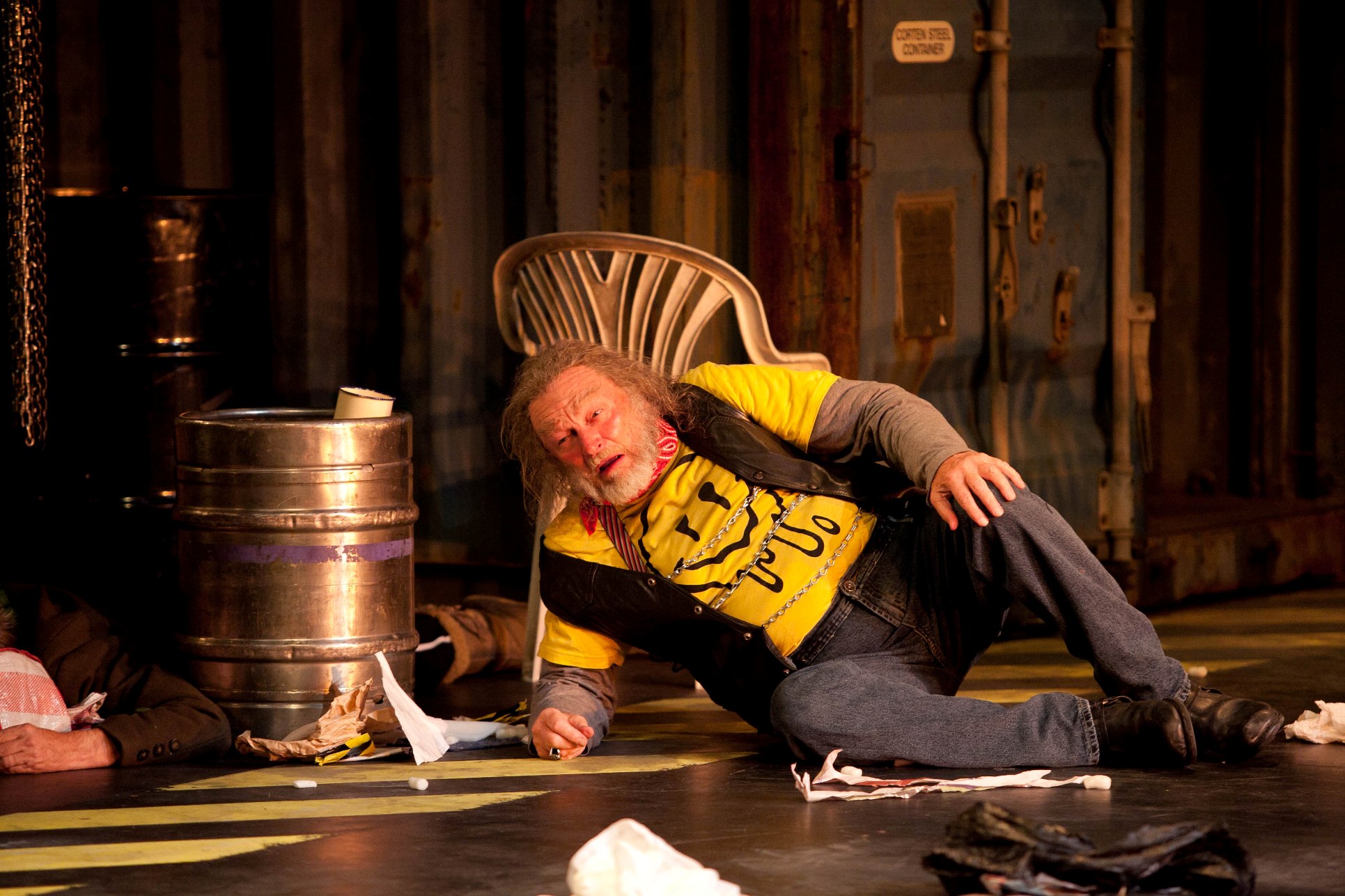theatre review: ‘bell shakespeare’s henry 4’
The Sex Pistols meet William Shakespeare. It isn’t often that these two British cultural icons are grouped together. Yet Bell Shakespeare’s new production of Henry 4 does just this, and much more, to present a punk-inspired interpretation of the classic play. The production debuted a few weeks ago in Canberra, and will soon open in Melbourne, before travelling to Perth and Sydney.
Drawing its inspiration from the 2011 London Riots, this production of Henry 4 is unlike any staged before. The play opens to reveal a city in a state of anarchy. Fringe dwellers of society gather around a set of strewn milk crates, abandoned vehicles, derelict furnishings and the likes. We are introduced to the rebellious Hal (Mathew Moore), the Prince of Wales, who has deserted his father for these less-than-glamorous companions with whom he seeks to forge a new identity. These include Falstaff (John Bell), an overweight, conniving and ruthless figure who poses as a friend and ally to Hal. The King of England, Henry 4 (David Whitney) holds and equally suspect position, somewhat removed from the seedy underbelly of Londonoccupied by Falstaff and his cohort. Having recently deposed his Cousin Richard II to claim the crown, the king is responsible for leading his country into a state of social chaos.
Bell unquestionably stole the show with his convincing portrayal of Falstaff. Having had the pleasure of seeing the veteran actor perform in numerous Shakespearean roles, this was, in my opinion, his finest performance. Gone was the mellifluous diction seen in previous performance, such as The Tempest (2006), and replaced with slurred, vulgar speech befitting that of his vulgar character. Bell’s performance in Henry 4 is a testament to his versatility as an actor. While Moore did a wonderful, job bringing the rebellious and deeply troubled Hal to life, Whitney was the other standout. His emotional performance of Henry 4 was a major highlight of the play, with the actor dominating the stage with his very human portrayal of the King, expressed in flowing Shakespearean diction. Whitney embodied the figure of a guilty yet remorseful father who fears the loss of his son’s respect more than his other troubles.
Bell and his co-director Damian Ryan successfully transformed Henry 4 into an engaging piece of contemporary theatre. At more than three hours (typical for a Shakespeare play), this was a long production that could easily lose an audience’s attention. Clever jokes such as the camp German tourist, and a parcel delivery boy inflected contemporary touches into the story that aroused a great deal of laughter. Fans of Baz Luhrmann’s 1995 film adaptation of Romeo and Juliet will see similarities in Bell Shakespeare’s treatment of Henry 4. Even the title of the play reflects this modernisation: the original play is Henry IV, Part 1 (c. 1597), which was loosely based on the fifteenth century English king of the same name.
The enduring appeal of Shakespeare lies in his ability to explore themes that exist in all societies. As the 2011 UK riots revealed, there is a great deal of tension between the haves and the have-nots. On a domestic scale, the often fraught relationship between father and son is something which many can relate to, as is the experience of seeing the grass as greener on the other side of the fence (or social rank). This is one of the most entertaining and thought-provoking pays I have seen in a long time. Bell Shakespeare’s Henry 4: two thumbs up!
Bell Shakespeare’s ‘Henry 4’ is showing at the Arts Centre Melbourne 14-30 March, before travelling to Perth and Sydney. See the Bell Shakespeare website for information about performances and tickets.



